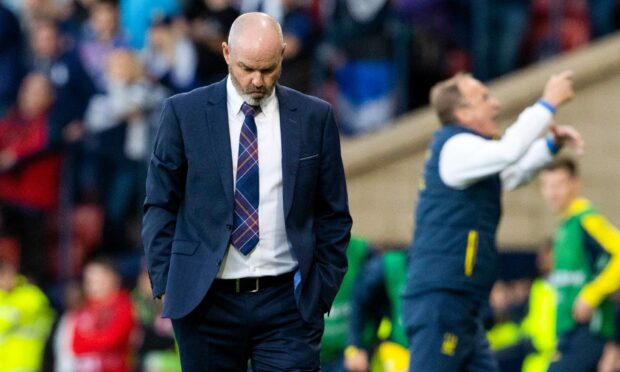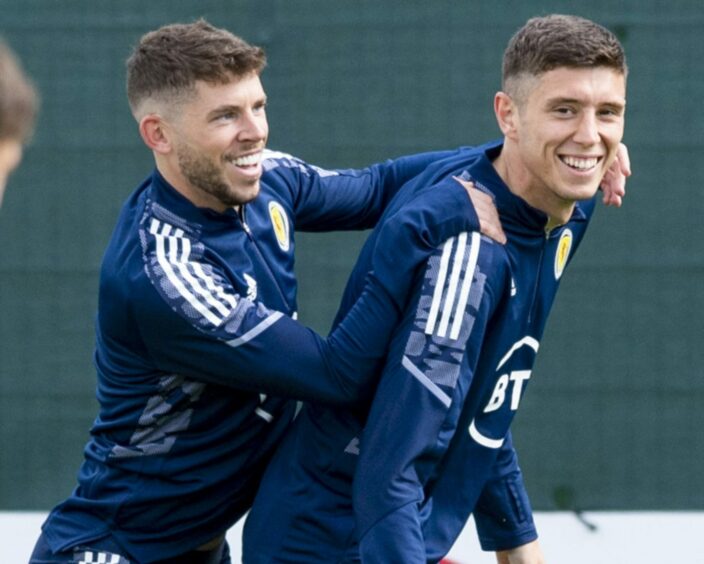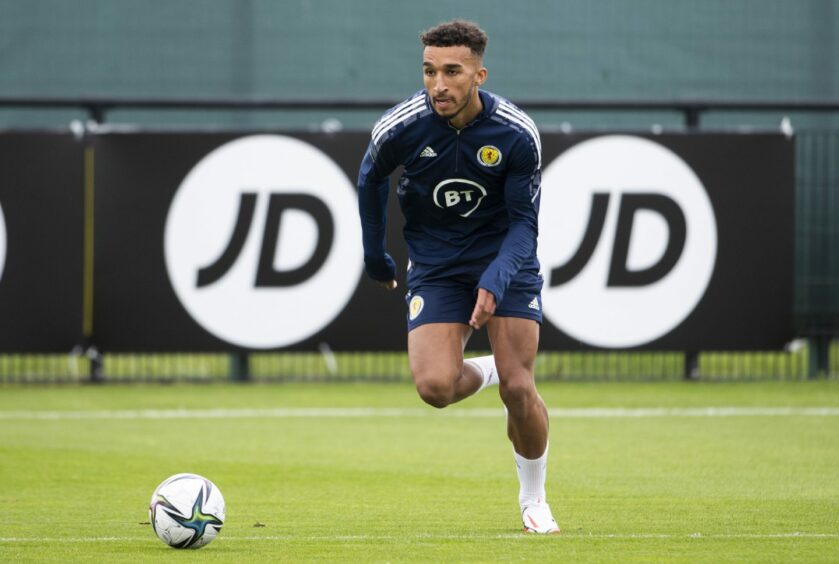The aftermath of Scotland’s World Cup play-off loss against Ukraine could easily leave the best of us feeling disheartened.
While there are still three Nations League games coming up against Armenia and Ireland, the Ukraine one was the big one. The gateway to unrealised dreams.
That Scotland failed to turn up for the majority of the game leaves a bitter taste. On a night of raw emotion it was they who failed to handle it, while Ukraine harnessed it to elevate themselves to new heights.
Scotland have to try find some positives to lift a pretty downbeat public. While manager Steve Clarke was right to highlight the progress which had been made in his three years as manager, the general mood after a defeat like this from those outside the inner-circle is likely to be reactionary rather than circumspect.
One way to do that would be to use these Nations League games to give some of the squad’s fringe players a chance to show they can be part of Scotland’s future. What is the use of having them with the squad if they do not get used?
Chance for younger players to prove themselves
Clarke’s priority will be getting his strongest 11 on the park to win all three matches. The play-off prize that comes with winning your Nations League group is one Scotland cannot turn their nose up at.
But there is still opportunity in these games to pick some of the younger or unproven players and challenge them to prove they have what it takes.
In the forward areas, Ross Stewart and Jacob Brown may feel aggrieved at not featuring at Hampden Park on Wednesday night. Stewart was called up to the squad in March but was not involved in either friendlies against Austria or Poland; that throwing Grant Hanley up front in the closing stages was viewed as a better option than calling on a 26-goal striker on the bench is a head-scratcher.
One last point on the game last night.
Surprised not to see Ross Stewart get on when we are in need of goals.
Especially after the season he’s had. Scoring for fun, just got promotion, confidence will be sky high etc.Anyway, we go again next tournament.
I’m off golfing. ⛳️ 🏴🤘🏻— Lee Mair (@LMairzo) June 2, 2022
Brown has managed just five minutes of international football since his debut in November but has had a good season at Stoke. He can play wide or through the middle and deserves a chance to show why Clarke convinced him to pick Scotland last year.
Lewis Ferguson and David Turnbull represent the future in midfield but their international experience is limited. Ferguson started the friendly with Austria and Turnbull the draw with Netherlands before last year’s Euros – both have had only a smattering of minutes since.
Anthony Ralston, Scott McKenna and John Souttar should all see some game-time at the back; it was not long ago that McKenna and Souttar were being talked about as the future of Scotland’s defence. Mainly owing to Souttar’s long injury problems, the pair have never played together for the national side.
Craig Gordon was one of the few redeeming features from the Ukraine game but is 39. Who knows how long he can keep defying age and producing top-drawer performances? Putting Zander Clark or Liam Kelly in would at least let Clarke see what his alternatives are capable of.
What else is on offer
I am not naïve enough to suggest that wholesale changes should be made to the squad. Ripping everything up and making 11 changes to the team would do little good to anyone.
But over the 270 minutes that are left in this international window, there should be ample opportunity for the aforementioned players – and others who have been waiting patiently – to get their chance.
There should be little left to learn as to what Grant Hanley, Stuart Armstrong or Callum McGregor can offer at international level, nor should we write these players off as they will have roles to play going forward.
But to lift a dispirited fanbase, they need to be given a glimpse of what else is on offer.


